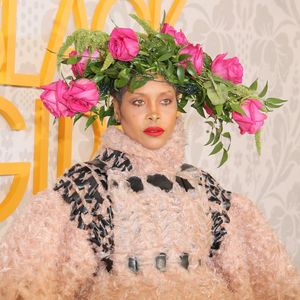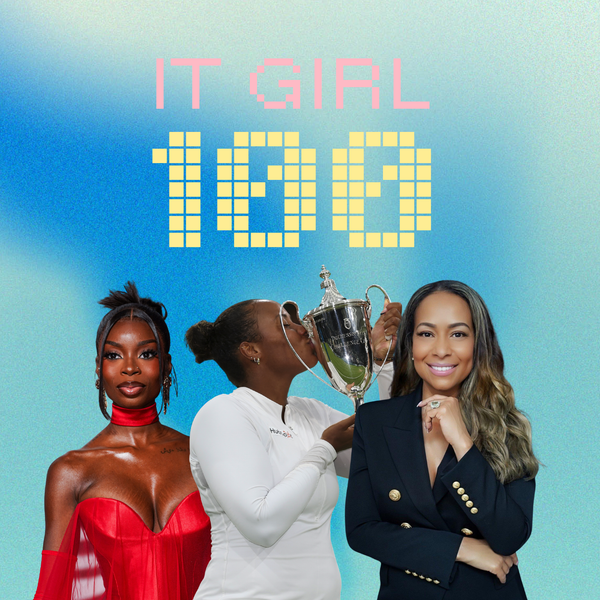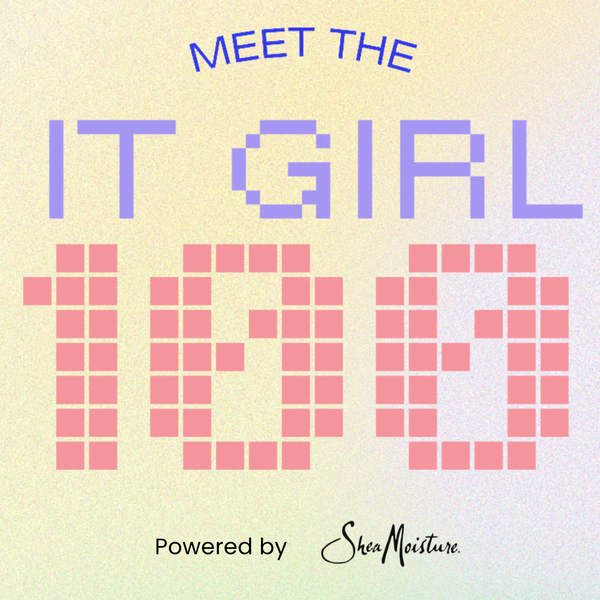5 Lessons Michelle Buteau’s 'Survival Of The Thickest' Netflix Series Taught Me
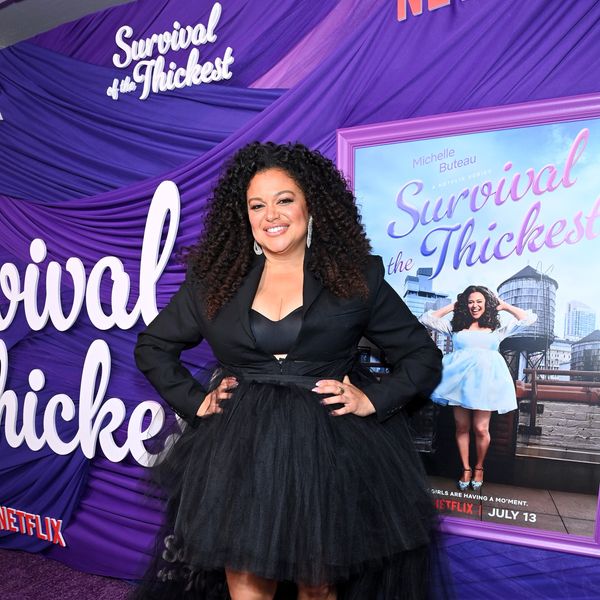
Michelle Buteau’s comedy series Survival of Thickest recently premiered on Netflix. And as a plus-size woman in her thirties, seeing a plus-size character who wasn’t the sidekick was extremely refreshing. Yes, the Plus community has had a few main characters (i.e., Miss Piggy – fat and fabulous). But at what cost? Like other plus-size characters, Miss Piggy was constantly ridiculed for her size.
Historically, plus-size female characters were pigeonholed into comedic relief roles or underwent a transformation to be deemed “attractive.” Such portrayals perpetuate the damaging message that one's value or beauty is tied to their body size. And because I didn’t have the representation, I wanted on-screen then, I am so happy to see the shift in how plus-size characters are portrayed now. Representation matters immensely. It shapes perceptions, builds confidence, and fosters acceptance. Everyone deserves to see diverse bodies depicted as confident, beautiful, and worthy of love.
Buteau refers to her series as a “love letter to fatty baddies” during an interview with NPR, and I couldn’t agree more. In addition to being an attention-grabbing and funny series, Buteau was meticulous in creating the on-screen lead – Mavis Beaumont. She was fun-loving, empowering, and raw. Mavis stood in who she was, not just as a woman but as a plus-size baddie. She never settled, which once again…thank you! This series taught me five lessons – some new and some I just needed a friendly reminder of.
Loving your plus-size body isn’t WEIRD (or even wrong)
This was one lesson I always knew, but seeing a TV series reaffirm it makes it that much more important. Something about seeing fat positivity seems to irk some people’s spirits. It doesn’t matter if you’re a size ten or size twenty-two; you deserve to love the skin you are in. You deserve to feel comfortable, loved, and seen. And no one has the right to take offense to you loving every inch and roll of your body. Mavis did a fantastic job showcasing this lesson throughout the season.
But unfortunately, there are still so many who disagree. For instance, plus-size beauty and fashion influencer Stella Williams is often criticized for her confidence in wearing various clothing – side cut-out swimsuits, crop tops, etc. She is constantly criticized for not “minimizing her stomach” no matter how cute the outfit is, but why should she? Why is it wrong that a plus-size woman loves her body and has no issues hiding it? Williams continuously breaks the barriers of unrealistic beauty norms and refuses to be shut out.
Plus-size characters are MORE than a joke
Survival of the Thickest proved that writers can create a character without making that individual a stereotype. A fat character on screen doesn’t have to be glutinous, sloppy, or joking about their bodies. And let’s be honest; fat jokes are unoriginal. Fat jokes have plagued TV shows and films for years. One example is the popular cult classic Next Friday, where Day-Day (Mike Epps) used food to influence Baby D (played by rapper The Lady of Rage) to stop chasing after him. Those types of jokes imply that plus-size people have an unhealthy relationship with food, an obsession.
Plus-size people can be a MAIN CHARACTER
This lesson applies to real-life and on-screen. Your size doesn’t mean you can’t be the main character ever. Nowadays, I see plus-size people who own who they are, but this lesson is for those who never saw a plus-size main character or didn’t feel they could be the main character in their own lives.
I grew up in an era where plus-size representation was SCARCE. Honestly non-existent. Unless it was coming from close to home, you might’ve not experienced being told you were beautiful without it was a backhanded comment – “Pretty for a big girl” or “You would be prettier if you lost weight.” Therefore, you had to have tough skin on the playground and in the world. And it would be the same sentiment in movies and books. But do not dim your light because of how others believe you should be or look.
Be Authentically YOU
One thing I respected about Mavis was that she was authentically herself. People change to conform to spaces that weren’t meant for them. And I’ve always said I’m too big to be placed in a box, personality included. Plus, life is too short not to be who you are and meant to be. Every space – friends/circles, environments, etc. – aren’t meant for you, and that’s OK.
A great example: Survival of the Thickest co-creator, executive producer and star Michelle Buteau. She has consistently reinforced that one's power comes from being authentic to oneself. By sharing her experiences as a plus-size woman in the entertainment industry, Buteau demonstrates the importance of being genuine in a world that often promotes idealized images of women. This lesson teaches us to empower ourselves and inspire others by honoring and showcasing our authentic selves.
Plus-size bodies ARE desirable
Like number one, this was a lesson I learned early, but once again, Mavis reaffirmed it throughout the season. I enjoyed that Mavis found love without feeling the need to change. One movie you witness this in is the 2006 rom-com Phat Girlz. The main character Jazmin, played by Mo’Nique, couldn’t believe Dr. Tunde was initially interested in her or was faithful, so much so that Jazmin questioned him at one point for not trying to sleep with her. I remember being frustrated that the main character only felt desirable through a level of sexual attraction.
Another time we see this is in the early 2000s series Degrassi. I wanted so much more for Terri’s character. She was plus-size and one of the prettiest girls on the show, but her character was made to be insecure. And I understand this was a teen series; therefore, they were dealing with underage drinking, insecurities, and love, but she deserved a more fleshed-out story.
Let’s make things inbox official! Sign up for the xoNecole newsletter for daily love, wellness, career, and exclusive content delivered straight to your inbox.
Feature image by Roy Rochlin/Getty Images for Netflix
Because We Are Still IT, Girl: It Girl 100 Returns
Last year, when our xoNecole team dropped our inaugural It Girl 100 honoree list, the world felt, ahem, a bit brighter.
It was March 2024, and we still had a Black woman as the Vice President of the United States. DEI rollbacks weren’t being tossed around like confetti. And more than 300,000 Black women were still gainfully employed in the workforce.
Though that was just nineteen months ago, things were different. Perhaps the world then felt more receptive to our light as Black women.
At the time, we launched It Girl 100 to spotlight the huge motion we were making as dope, GenZennial Black women leaving our mark on culture. The girls were on the rise, flourishing, drinking their water, minding their business, leading companies, and learning to do it all softly, in rest. We wanted to celebrate that momentum—because we love that for us.
So, we handpicked one hundred It Girls who embody that palpable It Factor moving through us as young Black women, the kind of motion lighting up the world both IRL and across the internet.
It Girl 100 became xoNecole’s most successful program, with the hashtag organically reaching more than forty million impressions on Instagram in just twenty-four hours. Yes, it caught on like wildfire because we celebrated some of the most brilliant and influential GenZennial women of color setting trends and shaping culture. But more than that, it resonated because the women we celebrated felt seen.
Many were already known in their industries for keeping this generation fly and lit, but rarely received recognition or flowers. It Girl 100 became a safe space to be uplifted, and for us as Black women to bask in what felt like an era of our brilliance, beauty, and boundless influence on full display.
And then, almost overnight, it was as if the rug was pulled from under us as Black women, as the It Girls of the world.
Our much-needed, much-deserved season of ease and soft living quickly metamorphosed into a time of self-preservation and survival. Our motion and economic progression seemed strategically slowed, our light under siege.
The air feels heavier now. The headlines colder. Our Black girl magic is being picked apart and politicized for simply existing.
With that climate shift, as we prepare to launch our second annual It Girl 100 honoree list, our team has had to dig deep on the purpose and intention behind this year’s list. Knowing the spirit of It Girl 100 is about motion, sauce, strides, and progression, how do we celebrate amid uncertainty and collective grief when the juice feels like it is being squeezed out of us?
As we wrestled with that question, we were reminded that this tension isn’t new. Black women have always had to find joy in the midst of struggle, to create light even in the darkest corners. We have carried the weight of scrutiny for generations, expected to be strong, to serve, to smile through the sting. But this moment feels different. It feels deeply personal.
We are living at the intersection of liberation and backlash. We are learning to take off our capes, to say no when we are tired, to embrace softness without apology.
And somehow, the world has found new ways to punish us for it.

In lifestyle, women like Kayla Nicole and Ayesha Curry have been ridiculed for daring to choose themselves. Tracee Ellis Ross was labeled bitter for speaking her truth about love. Meghan Markle, still, cannot breathe without critique.
In politics, Kamala Harris, Letitia James, and Jasmine Crockett are dragged through the mud for standing tall in rooms not built for them.
In sports, Angel Reese, Coco Gauff, and Taylor Townsend have been reminded that even excellence will not shield you from racism or judgment.

In business, visionaries like Diarrha N’Diaye-Mbaye and Melissa Butler are fighting to keep their dreams alive in an economy that too often forgets us first.
Even our icons, Beyoncé, Serena, and SZA, have faced criticism simply for evolving beyond the boxes society tried to keep them in.
From everyday women to cultural phenoms, the pattern is the same. Our light is being tested.

And yet, somehow, through it all, we are still showing up as that girl, and that deserves to be celebrated.
Because while the world debates our worth, we keep raising our value. And that proof is all around us.
This year alone, Naomi Osaka returned from motherhood and mental health challenges to reach the semifinals of the US Open. A’ja Wilson claimed another MVP, reminding us that beauty and dominance can coexist. Brandy and Monica are snatching our edges on tour. Kahlana Barfield Brown sold out her new line in the face of a retailer that had been canceled. And Melissa Butler’s company, The Lip Bar, is projecting a forty percent surge in sales.

We are no longer defining strength by how much pain we can endure. We are defining it by the unbreakable light we continue to radiate.
We are the women walking our daily steps and also continuing to run solid businesses. We are growing in love, taking solo trips, laughing until it hurts, raising babies and ideas, drinking our green juice, and praying our peace back into existence.
We are rediscovering the joy of rest and realizing that softness is not weakness, it is strategy.
And through it all, we continue to lift one another. Emma Grede is creating seats at the table. Valeisha Butterfield has started a fund for jobless Black women. Arian Simone is leading in media with fearless conviction. We are pouring into each other in ways the world rarely sees but always feels.

So yes, we are in the midst of societal warfare. Yes, we are being tested. Yes, we are facing economic strain, political targeting, and public scrutiny. But even war cannot dim a light that is divinely ours.
And we are still shining.
And we are still softening.
And we are still creating.
And we are still It.

That is the quiet magic of Black womanhood, our ability to hold both truth and triumph in the same breath, to say yes, and to life’s contradictions.
It is no coincidence that this year, as SheaMoisture embraces the message “Yes, And,” they stand beside us as partners in celebrating this class of It Girls. Because that phrase, those two simple words, capture the very essence of this moment.
Yes, we are tired. And we are still rising.
Yes, we are questioned. And we are the answer.
Yes, we are bruised. And we are still beautiful.

This year’s It Girl 100 is more than a list. It is a love letter to every Black woman who dares to live out loud in a world that would rather she whisper. This year’s class is living proof of “Yes, And,” women who are finding ways to thrive and to heal, to build and to rest, to lead and to love, all at once.
It is proof that our joy is not naive, our success not accidental. It is the reminder that our light has never needed permission.
So without further ado, we celebrate the It Girl 100 Class of 2025–2026.
We celebrate the millions of us who keep doing it with grace, grit, and glory.
Because despite it all, we still shine.
Because we are still her.
Because we are still IT, girl.
Meet all 100 women shaping culture in the It Girl 100 Class of 2025. View the complete list of honorees here.
Featured image by xoStaff
These Black Women Left Their Jobs To Turn Their Wildest Dreams Into Reality
“I’m too big for a f***ing cubicle!” Those thoughts motivated Randi O to kiss her 9 to 5 goodbye and step into her dreams of becoming a full-time social media entrepreneur. She now owns Randi O P&R. Gabrielle, the founder of Raw Honey, was moving from state to state for her corporate job, and every time she packed her suitcases for a new zip code, she regretted the loss of community and the distance in her friendships. So she created a safe haven and village for queer Black people in New York.
Then there were those who gave up their zip code altogether and found a permanent home in the skies. After years spent recruiting students for a university, Lisa-Gaye Shakespeare became a full-time travel influencer and founded her travel company, Shakespeare Agency. And she's not alone.
These stories mirror the experiences of women across the world. For millions, the pandemic induced a seismic shift in priorities and desires. Corporate careers that were once hailed as the ultimate “I made it” moment in one's career were pushed to the back burner as women quit their jobs in search of a more self-fulfilling purpose.
xoNecole spoke to these three Black women who used the pandemic as a springboard to make their wildest dreams a reality, the lessons they learned, and posed the question of whether they’ll ever return to cubicle life.
Answers have been edited for context and length.
xoNecole: How did the pandemic lead to you leaving the cubicle?
Randi: I was becoming stagnant. I was working in mortgage and banking but I felt like my personality was too big for that job! From there, I transitioned to radio but was laid off during the pandemic. That’s what made me go full throttle with entrepreneurship.
Gabrielle: I moved around a lot for work. Five times over a span of seven years. I knew I needed a break because I had experienced so much. So, I just quit one day. Effective immediately. I didn’t know what I was going to do, I just knew I needed a break and to just regroup.
Lisa-Gaye: I was working in recruiting at a university and my dream job just kind of fell into my lap! But, I never got to fully enjoy it before the world shut down in March [2020] and I was laid off. On top of that, I was stuck in Miami because Jamaica had closed its borders due to the pandemic before I was able to return.
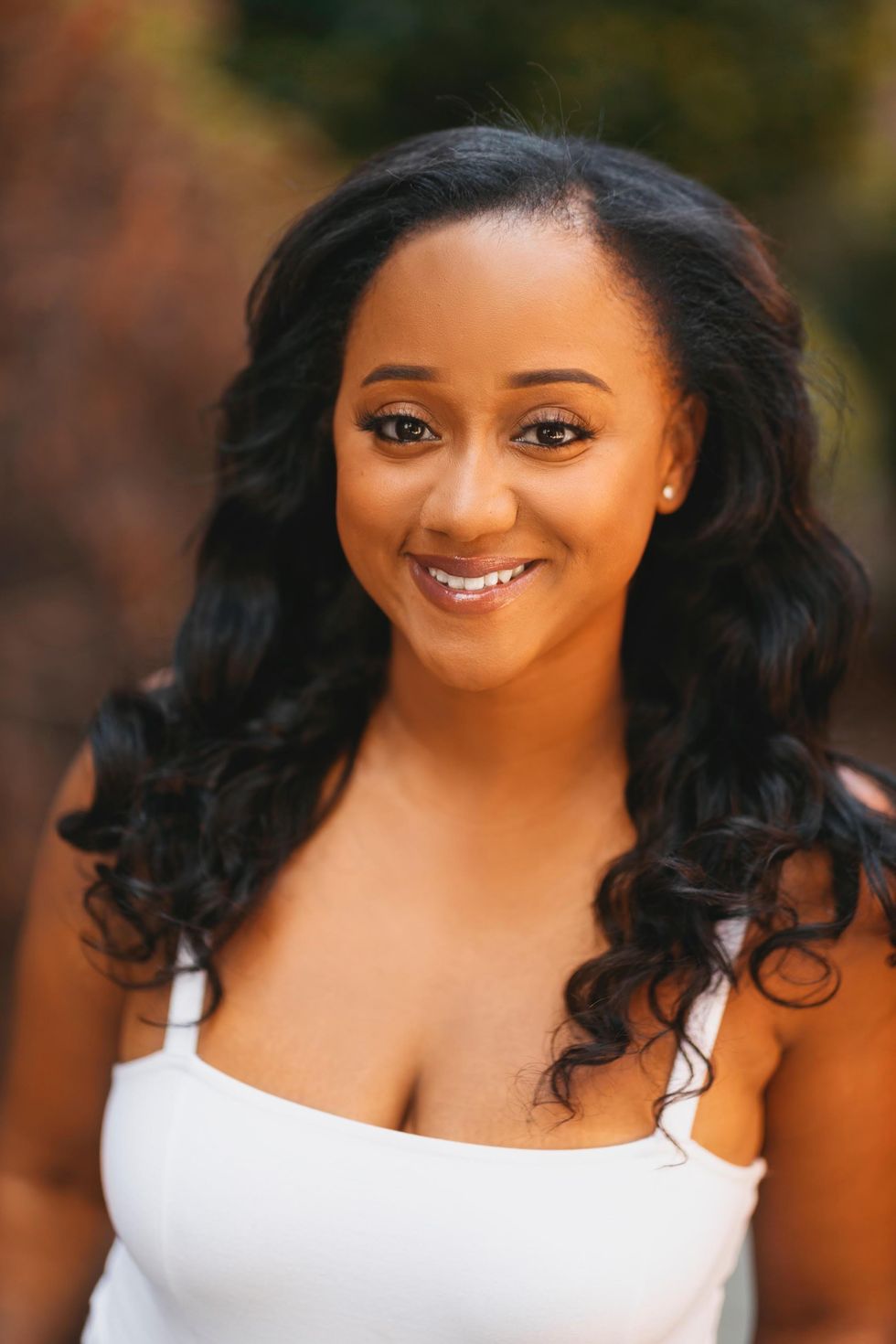
Randi O
xoN: Tell us about your journey after leaving Corporate America.
Randi: I do it all now! I have a podcast, I’m an on-air talent, I act, and I own a public relations company that focuses on social media engagement. It’s all from my network. When you go out and start a business, you can’t just say, “Okay I’m done with Corporate America,” and “Let me do my own thing.” If you don’t build community, if you don’t build a network it's going to be very hard to sustain.
Gabrielle: I realized in New York, there was not a lot to do for Black lesbians and queer folks. We don’t really have dedicated bars and spaces so I started doing events and it took off. I started focusing on my brand, Raw Honey. I opened a co-working space, and I was able to host an NYC Pride event in front of 100,000 people. I hit the ground running with Raw Honey. My events were all women coming to find community and come together with other lesbians and queer folks. I found my purpose in that.
Lisa-Gaye: After being laid off, I wrote out all of my passions and that’s how I came up with [my company] Shakespeare Agency. It was all of the things that I loved to do under one umbrella. The pandemic pulled that out of me. I had a very large social media following, so I pitched to hotels that I would feature them on my blog and social media. This reignited my passion for travel. I took the rest of the year to refocus my brand to focus solely on being a content creator within the travel space.
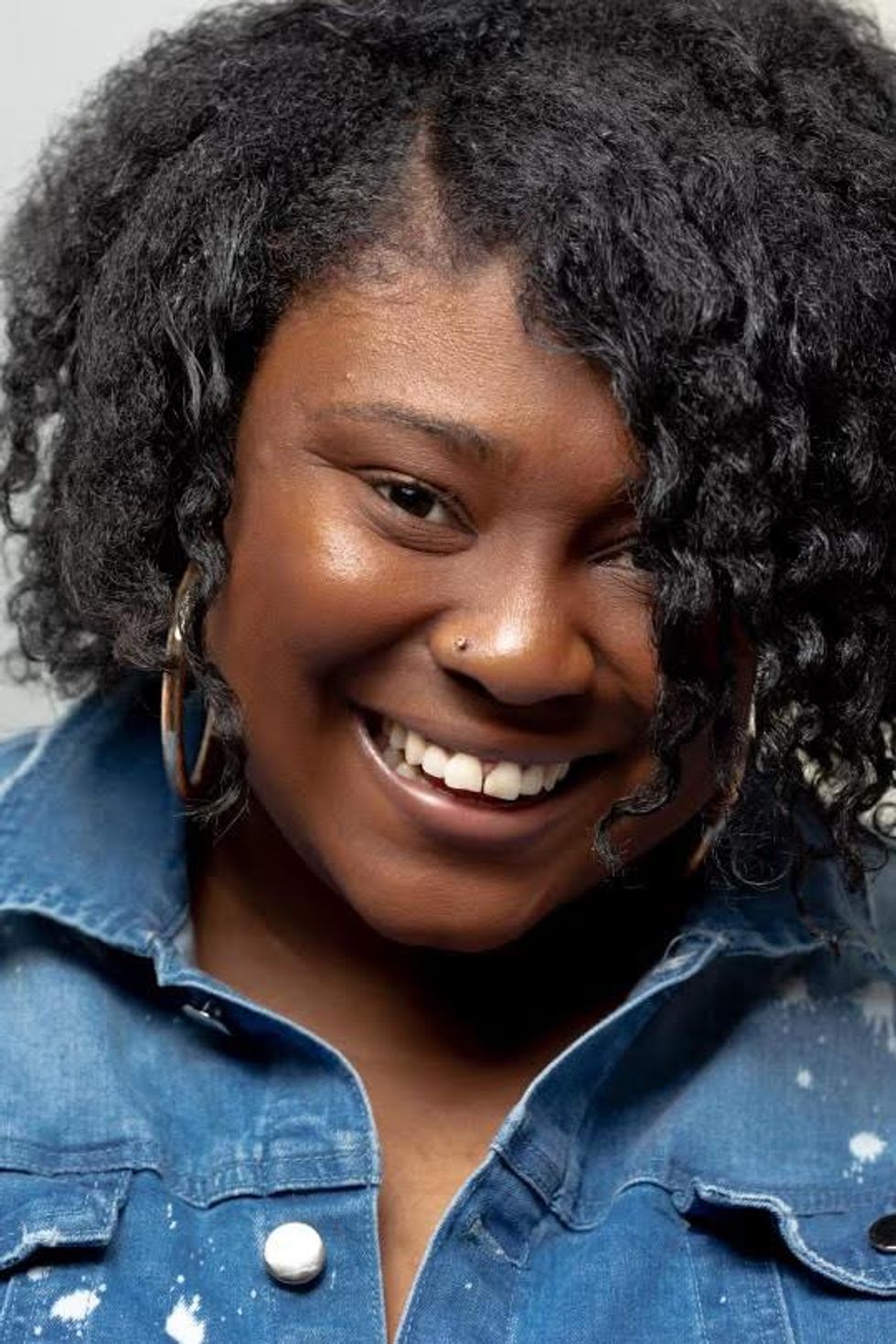
Gabrielle
xoN: What have you learned about yourself during your time as an entrepreneur?
Randi: [I learned] the importance of my network and community that I created. When I was laid off I was still keeping those relationships with people that I used to work with. So it was easy for me to transition into social media management and I didn’t have to start from scratch.
Gabrielle: The biggest thing I learned about myself was my own personal identity as a Black lesbian and how much I had assimilated into straight and corporate culture and not being myself. Now, I feel comfortable and confident being my authentic self. Now, I'm not sacrificing anything else for my career. I have a full life. I have friends. I have a social life. And when you are happy and have a full quality of life, I feel like [I] can have more longevity in my career.
Lisa-Gaye: [I'm doing] the best that I've ever done. The discipline that I’m building within myself. Nobody is saying, ‘Oh you have to be at work at this time.’ There’s no boss saying, ‘Why are you late?’ But, if I’m laying in bed at 10 a.m. then it's me saying [to myself], 'Okay, Lisa, get up, it's time for you to start working!’ That’s all on me.
xoNecole: What mistakes do you want to help people avoid when leaving Corporate America?
Randi: You have to learn about the highs and lows of entrepreneurship. You have a fast season and a slow season and I started to learn that when you're self-employed the latter season hits hard. Don't get caught up on the lows, just keep going and don't stop. I’m glad I did.
Gabrielle: I think everyone should quit their job and just figure it out for a second. You will discover so much about yourself when you take a second to just focus on you. Your skill set will always be there. You can’t be afraid of what will happen when you bet on yourself.
Lisa-Gaye: When it comes to being an influencer the field is saturated and a lot of people suffer from imposter syndrome. There is nothing wrong with being an imposter but find out how to make it yours, how to make it better. If you go to the store, you see 10 million different brands of bread! But you are choosing the brand that you like because you like that particular flavor.
So be an imposter, but be the best imposter of yourself and add your own flair, your own flavor. Make the better bread. The bread that you want.
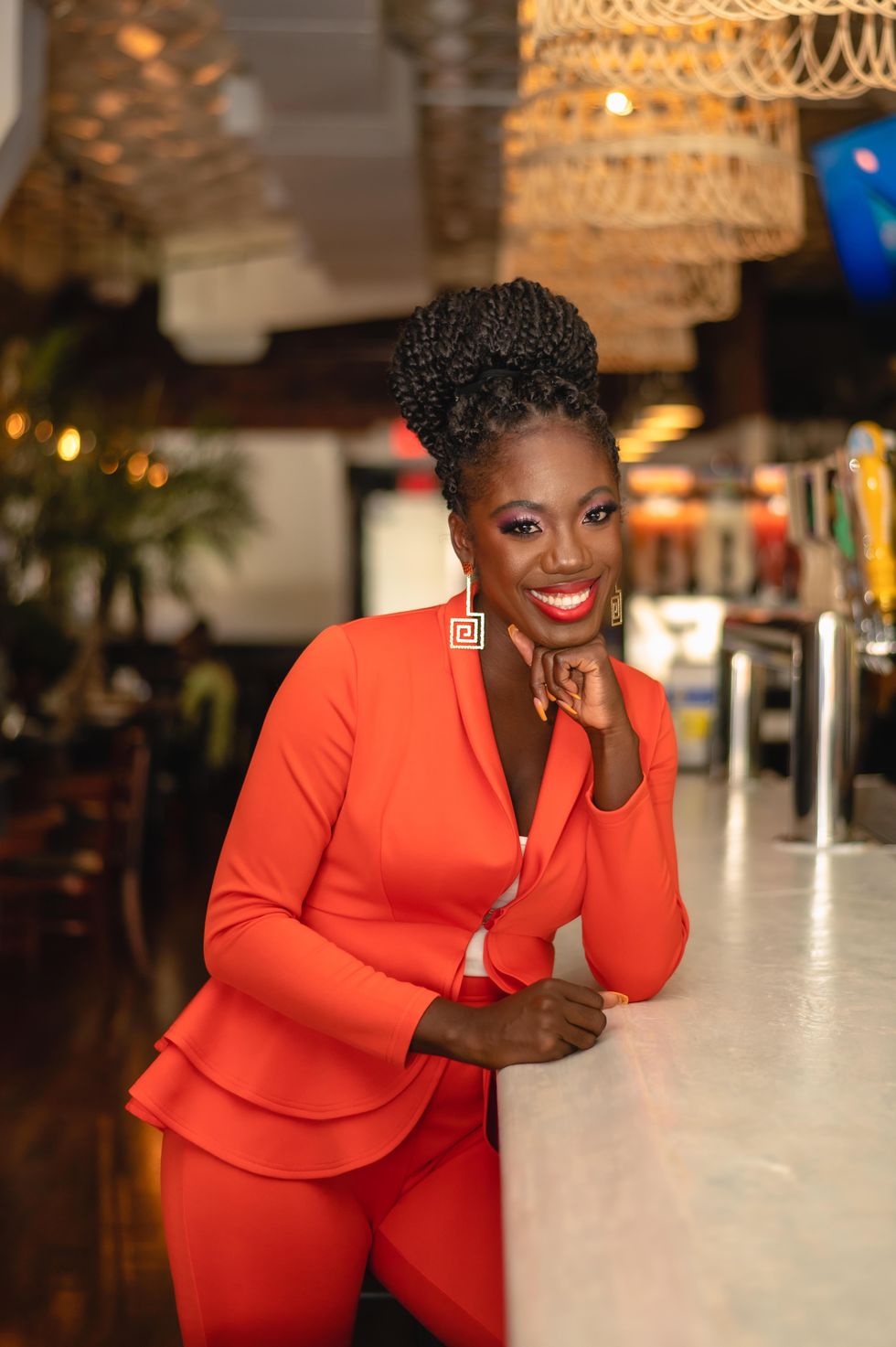
Lisa-Gaye Shakespeare
xoNecole: Will you ever return to your 9 to 5?
Randi: I wouldn’t go back to Corporate America. But I don’t mind working under someone. A lot of people try to get into this business saying, “I can't work under anyone.” That’s not necessarily the reason to start a business because you're always going to answer to somebody. Clients, brands, there’s always someone else involved.
Gabrielle: I went back! I really needed a break and I gave myself that. But, I realized I’m a corporate girl, [and] I enjoy the work that I do. I’m good at it and I really missed that side of myself. I have different sides of me and my whole identity is not Raw Honey or my queerness. A big side of me is business and that’s why I love having my career. Now I feel like my best self.
Lisa-Gaye: I really don’t. For right now, I love working for myself. It's gratifying, it's challenging, it's exciting. It’s a big deal for me to say I own my own business. That I am my own boss, and I'm a Black woman doing it.
Let’s make things inbox official! Sign up for the xoNecole newsletter for love, wellness, career, and exclusive content delivered straight to your inbox.
Featured image courtesy of Lisa-Gaye Shakespeare
Originally published on February 6, 2023

